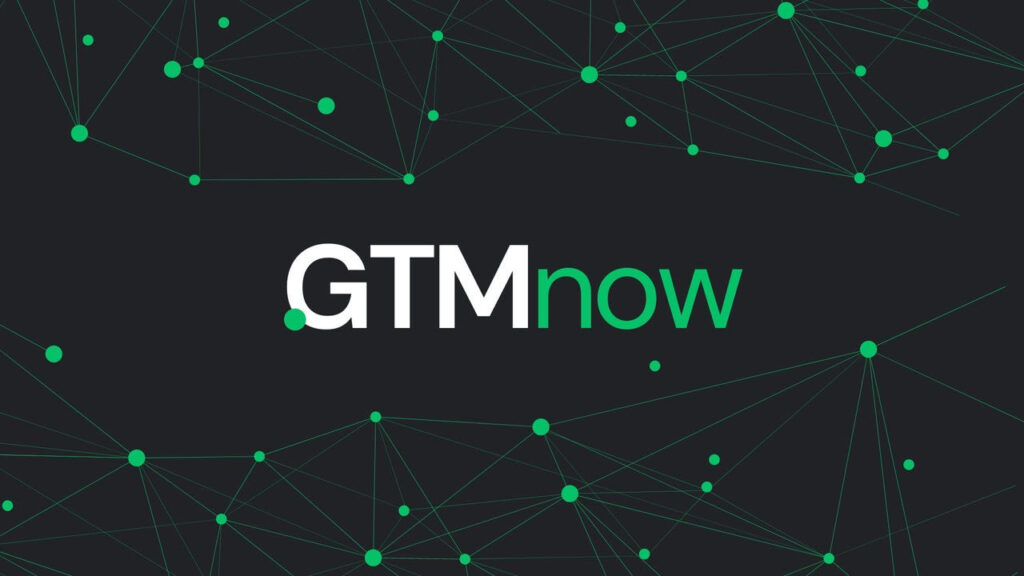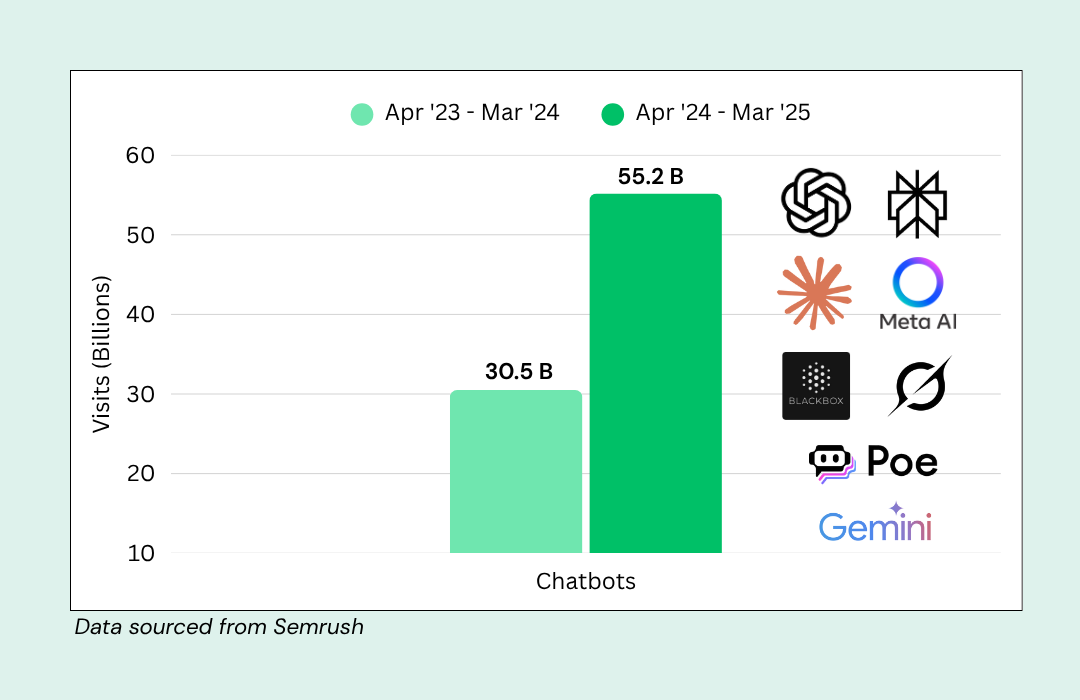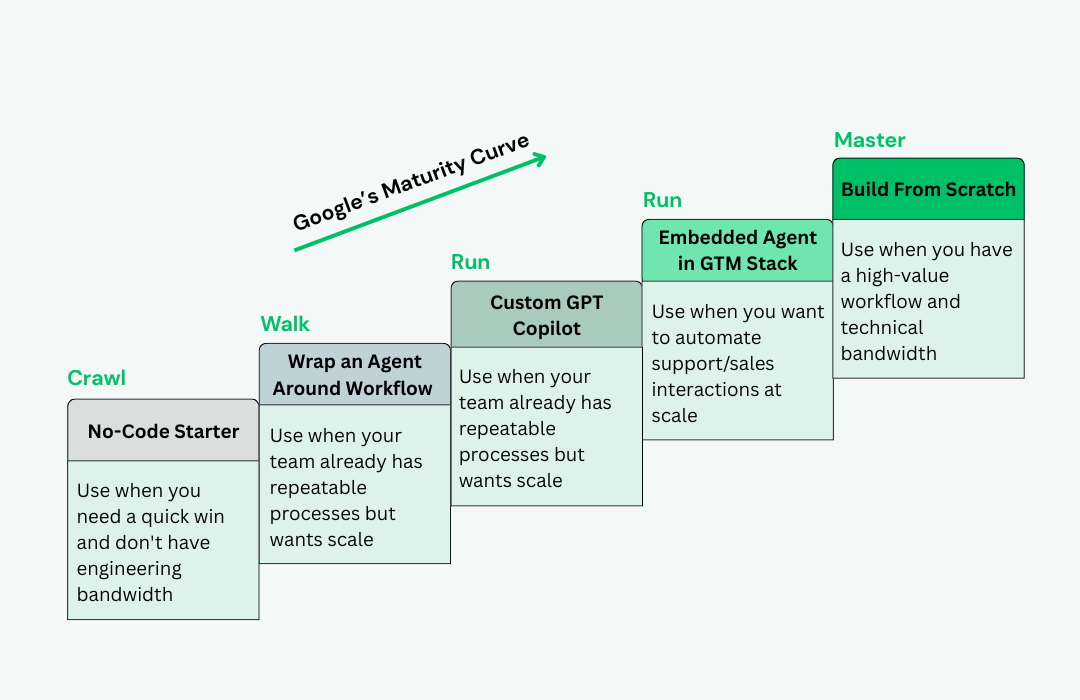AI for sales is nothing new. But what are the real benefits of AI? Is it a lot of buzz or does it deliver real value?
Sales tools using machine learning and deep learning are already widespread in the market today. And while the scope of AI’s impact may still be limited to certain types of activities, the power and scope of AI will continue to grow.
Related: 7 ChatGPT Prompts for Selling to the C-Suite
In this article, we discuss the state of AI in 2020, especially for enterprise sales. You’ll learn:
- AI definition, and other terms you should know
- The benefits of AI
- The limitations of AI
- AI for sales: how it delivers value
AI Definition (and Other Terms You Should Know)
Our recent, in-depth study showed that these simple definitions can instantly make you look good at sales meetings and cocktail parties.
Let’s start with a simple AI definition.
What is Artificial intelligence (AI)?
AI is an umbrella term used to describe a variety of algorithms and techniques that support machines showing human-level intelligence, such as machine learning and deep learning.
It is essentially machines mimicking human, intelligent, “rational” behavior. Human cognitive functions such as learning and problem-solving are some of the areas that AI is being applied to, e.g., identifying cars on a road, playing Chess/Go.
Machine learning (ML): A set of algorithms that program machines to learn or, on a more basic level, how to learn. These algorithms are fed large sets of training data and they are able to infer correct answers based on “learnings” from the training data, e.g., predicting which movie a user is likely to watch based on past viewing history.
Deep learning (DL): A type of ML that replicates how human brains function, as a method to learn.
Neural Networks: Software-based interconnected networks, based on the human neuron, often used for DL.
Now that we have a common understanding of some terms related to AI, let’s first address a broader question before we get to answering the questions we raised above:
The Benefits of AI
In a nutshell, AI is generally good at solving problems where large sets of training data exist. So naturally, areas of enterprise sales where we can find large volumes of training data are ripe for AI-based applications:
- Lead scoring
- Content search
- Predicting sales velocity for similar types of products
Let’s look at some specific areas that have made great strides in AI in the last decade.
RELATED: The Future of AI for Sales (And How to Prepare for It)
Search and Natural Language Processing
Google and other search algorithms are able to learn and leverage user search and click behavior to better recommend search results. Underneath Google Search is a massive ML engine that is sifting through a huge amount of web data and marrying it with customer behavior data to learn what satisfies a customer.
Siri voice recognition is getting better at understanding what we are saying and taking action based on that input. For example, Siri continually trains itself on a large pool of all Siri users to recognize various global accents and pronunciations.
Vision and Image Recognition
Tesla and Google are working on self-driving cars, whose technology is based on computer vision and deep learning algorithms that are good at seeing traffic obstacles and taking appropriate action.
Tesla’s cars have driven over 1 billion miles autonomously as of the end of 2019. That’s a lot of traffic data to help build more accurate models and improve the algorithms.
Harvard’s skin cancer detection software is on par with a panel of expert dermatologists in determining skin cancer based on deep learning algorithms. Informed by 129,450 images, the deep learning algorithm can detect and diagnose skin abnormalities from just a picture.
Game Playing and Logic
AlphaGo, an AI created by a subsidiary of Google, beat world champion Lee Sedol in a game of Go. The software has been retooled to even beat humans at the real-time strategy game Starcraft.
IBM Watson defeated human competition in the trivia TV show Jeopardy back in 2011.
In 1997, DeepBlue defeated world chess champion Garry Kasparov. Since then, AI has systematically defeated human competition in essentially every game researchers have pitted the technology against.
In summary, machines in 2020 are good at learning in situations where there is a large volume of training data. But it’s not foolproof.
RELATED: Artificial Intelligence: The Sales Renaissance is Here
So let’s look at the use cases where AI fails us.
What Are the Limitations of AI in 2020?
Without getting overly technical, here are a few of AI’s shortcomings:
Using the past as a linear predictor of the future. Most AI/ML rely solely on prior data to make predictions for the future in a linear fashion.
Because of that, AI/ML wouldn’t predict the movie The Hangover as a blockbuster hit, given the marketability of the cast, storyline, etc. AI/ML will likely miss major “black swan” events, as these are outliers from historical data records and don’t lend themselves to predictability from existing data sets.
Causation remains a mystery. AI/ML can be good at predicting relationships between things, but it still can’t explain why certain things are related.
Common sense remains uncommon. AI/ML is best at solving limited/narrow problems. The notion of generic or broader learning concepts is still to be realized.
AI for Sales: Real Value or Buzz?
Yes, AI provides valuable assistance to the sales industry, but it won’t be able to do the work for you.
It can help you, but it can’t replace you.
The world of selling is complex and unstructured, driven by relationships, emotions, and personalities. In 2020, AI is not yet good at any of those aspects — as we noted earlier — but experienced salespeople definitely are!
RELATED: How To Prepare Your Sales Team For AI Adoption
Most interaction in sales lacks structured data collection, thereby making it harder to apply AI. The core challenge for enterprise sales to reap the benefits of AI remains with clean data-capture at scale.
However, AI is really good at solving narrow problems, especially where prior large training data sets exist — and the sales industry is full of such scenarios.
Instead of replacing entire processes, AI can optimize solving problems that salespeople deal with time and time again. Examples include:
- Which prospect should I call first?
- What is the most relevant information about a customer assimilated from multiple disparate sources?
- What is the most relevant content for a customer to see?
- What is the best pricing for a customer?
In short, AI + HI (Human Intelligence) = Augmented Intelligence.
Augmented Intelligence for sales is ready for prime time. A new layer of applications emerging in enterprise sales tech is poised to disrupt and vastly improve processes within sales organizations. I call this new layer: AI-based Sales Insights (AISI).
The AISI layer goes beyond the “AI-ification” of existing tools such as CRMs, quota management tools, proposal generators, etc.
The AISI layer is fundamentally focused on raising the game of the entire sales organization by leveraging data-driven, AI-based insights. This layer of intelligence sits on top of traditional workflow systems and drives key outcomes for sales organizations such as:
- Increased participation ratios, with deeper win insights and attribution around drivers
- Greater sales targeting efficiency, with smarter segmentation and lead prioritization
- Faster sales on-boarding, with most win insights and coaching available in real-time
- Increased sales productivity, with a multitude of bots available for common tasks
Now, let’s look at a typical enterprise sales cycle, and examine the new capabilities top vendors are enabling within this new paradigm.

This new class of applications is fundamentally divergent from other sales tech being utilized by enterprise today.
The new solutions leverage data from systems such as CRMs, sales enablement tools, and contract management systems, providing insights that were not so readily available before. This reduces the time and resources sellers spend on rote but necessary sales activities.
RELATED: What B2B Sales Professionals Really Think About Artificial Intelligence
Key Takeaways
As you can see, the benefits of AI are real. Not only do they make your job easier on a day-to-day basis, they can help you level up your skills and help you meet your targets.
Here’s what you need to remember…
AI isn’t about to take your job calling clients and providing the human touch on your sales activities, and it’s not likely to happen any time soon. AI struggles with identifying outlier events and determining cause/effect relationships.
AI is great at natural language processing, logic, and identifying trends where patterns exist. For sales, this includes functions such as finding relevant information about your customer or suggesting what customers to call next. Activities, like pursuing leads and identifying viable candidates are still a human-driven activity.
The next generation of AI-enabled sales applications is already here. New tools are adding value to sales activities where large data sets already exist, and the number of solutions is only increasing. If you don’t already have a tool or few powered by AI, you probably will soon.







